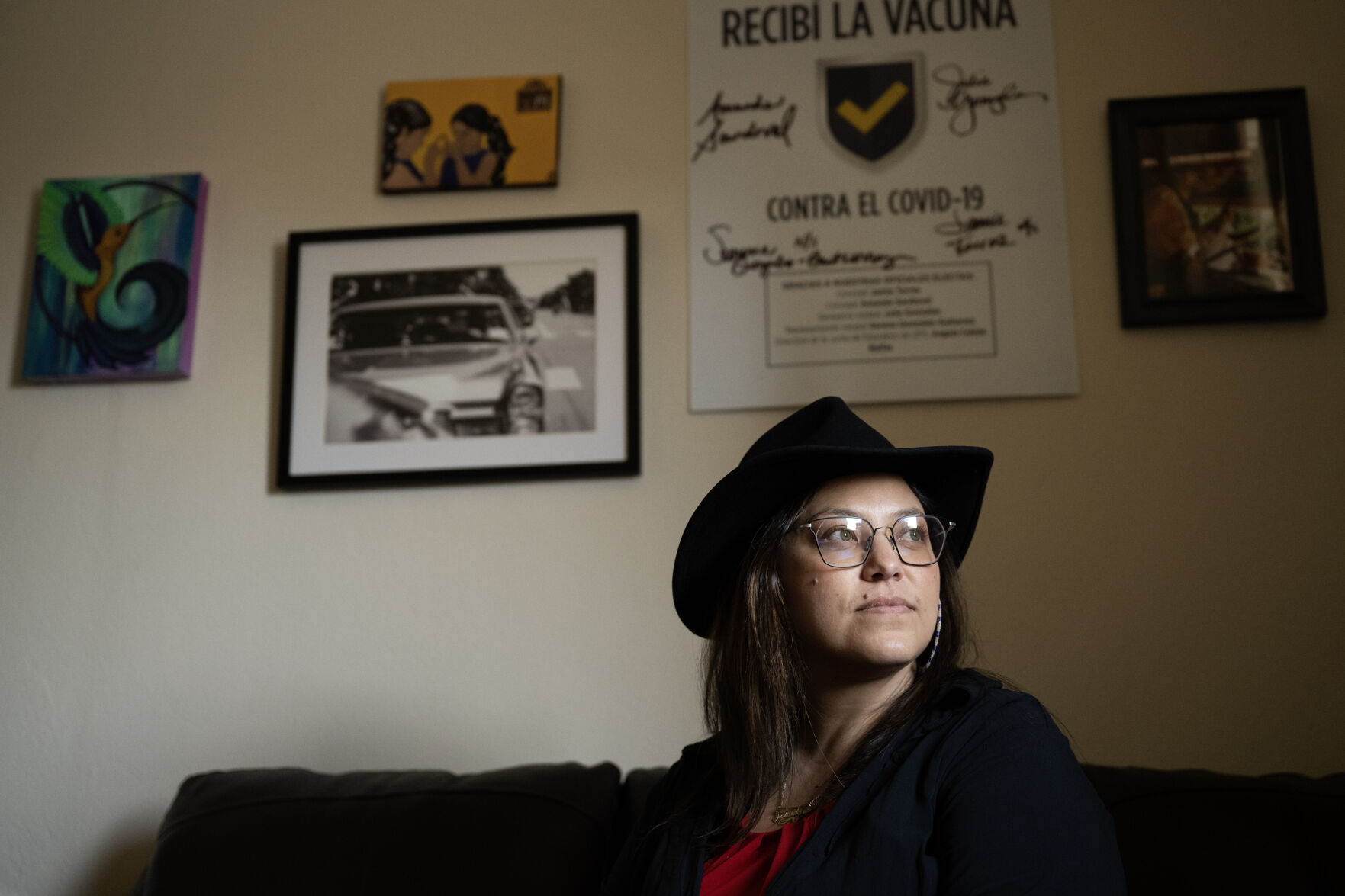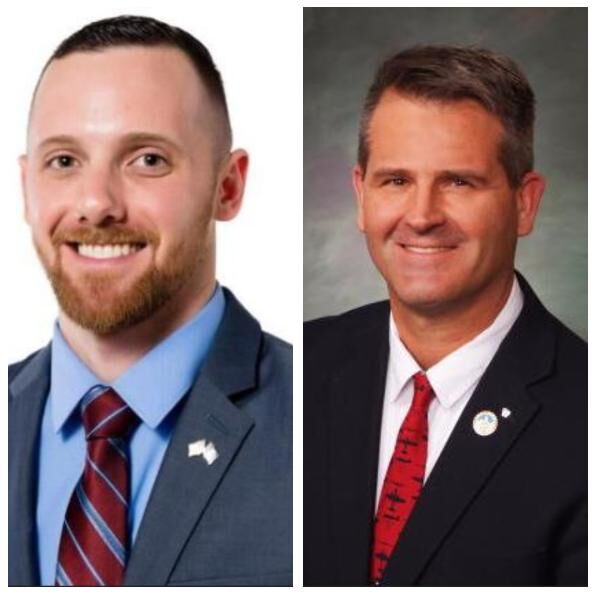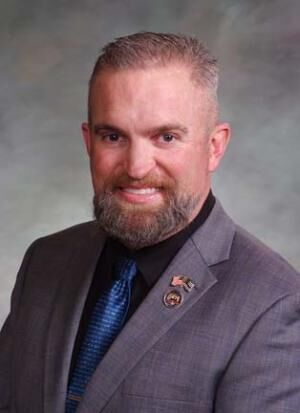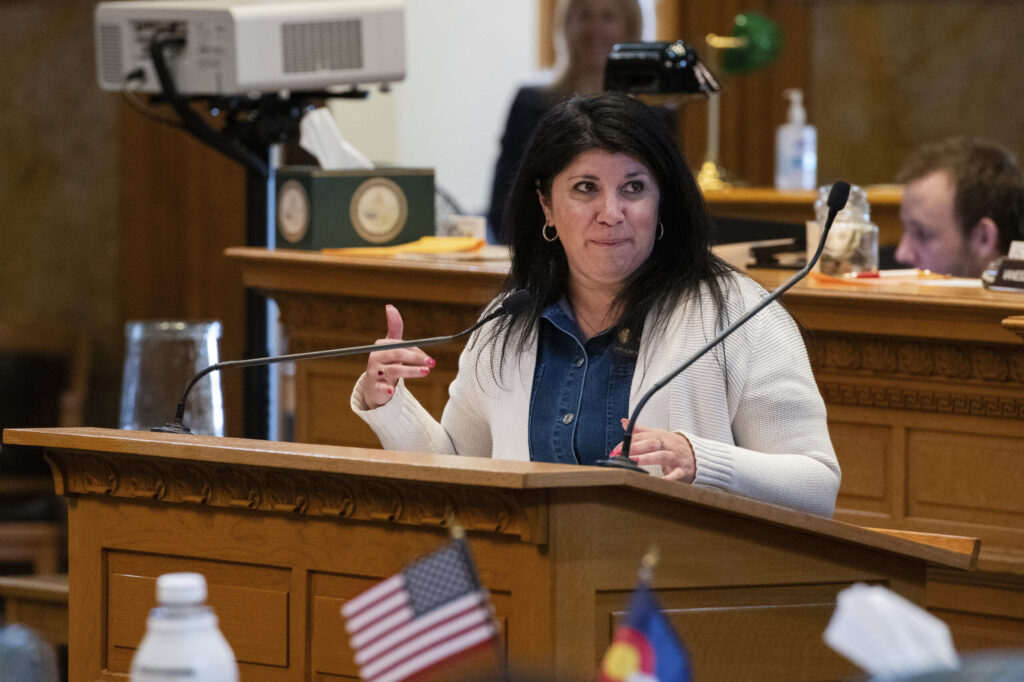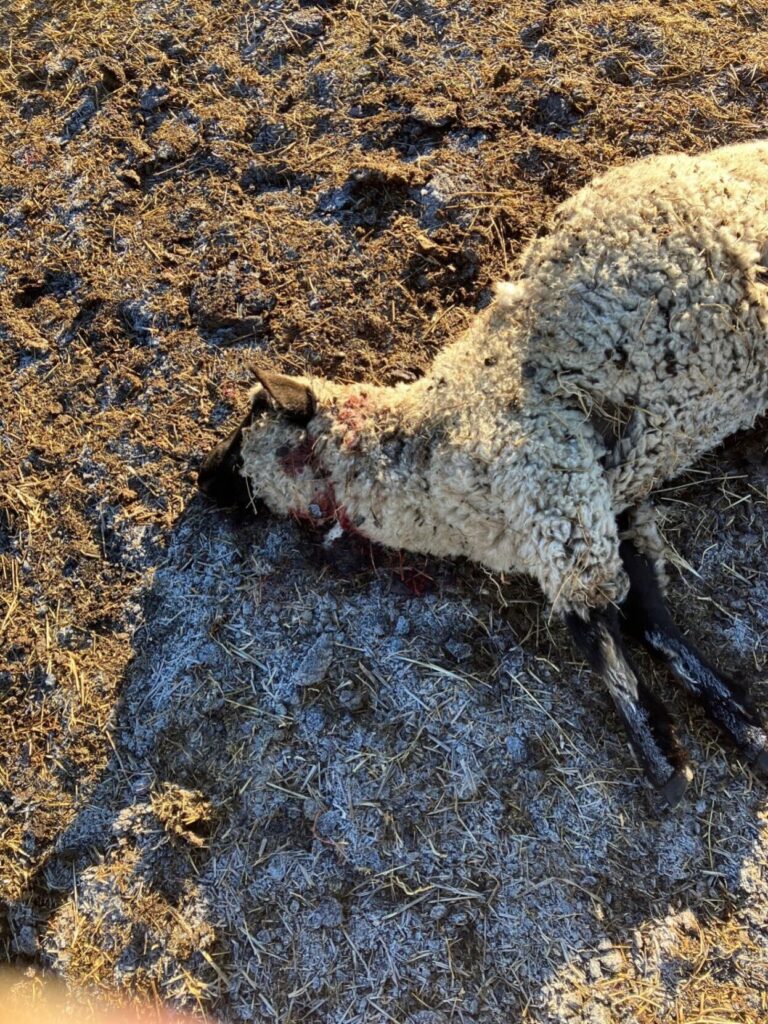Colorado towing company faces scrutiny after towing legislator’s vehicle
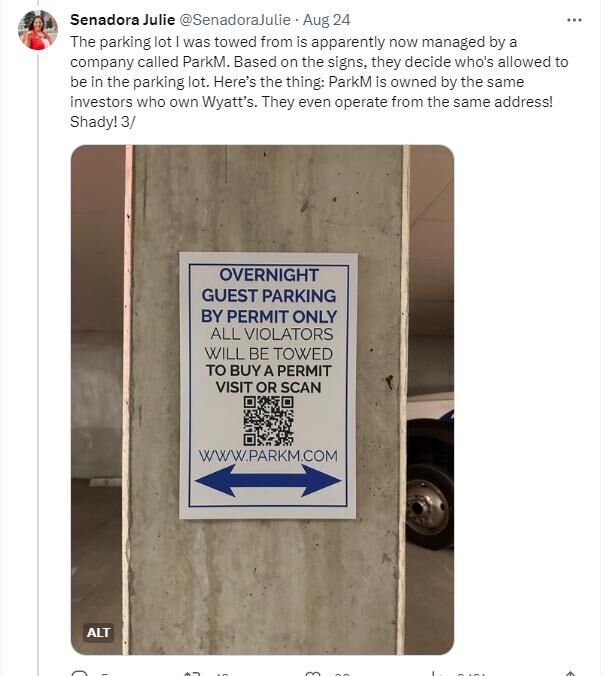
Attorney General Phil Weiser’s office on Monday confirmed opening an investigation in a towing company in the wake of hundreds of complaints, including one from a state senator who authored a consumers’ “bill of rights” on towing and found herself the victim of what she described as an illegal tow last week.
In a lengthy post last Thursday, Sen. Julie Gonzales described on X, the platform formerly known as Twitter, how her car had been towed on Wednesday evening from a parking garage that she had parked in before without incident.
New to the garage, however, was a sign from ParkM that said, “Overnight guest parking by permit only” with a QR code to buy the permit. Gonzales wasn’t planning to park overnight so she didn’t buy a permit.

marianne.goodland@coloradopolitics.com
When she returned, her car was gone, and three employees from Wyatt’s Towing, which handles tows for ParkM, told her the car had been towed.
Gonzales, a Denver Democrat, said the same investors who own ParkM also own Wyatt’s Towing and that they operate out of the same address. She based that conclusion from a 2022 investigation by the Community Economic Defense Project, whose attorney, is Rep. Javier Mabrey, is also a Denver Democrat.
The tow on Wednesday was only the beginning, according to Gonzales.
Gonzales said this is what happened. She went to Wyatt’s Towing and asked about setting up a payment plan for the cost, estimated at $353.47. By then, it was after 10 p.m., and the company employee told Gonzales she’d have to fill out a form and get manager’s approval. By 11:30 p.m., the approval had been granted, Gonzales paid $54.31 and got her car back. In the meantime, she began asking questions, such as why the paperwork need a manager’s approval, how many people were denied an installment plan request, and how often people do installment plans versus paying in full.
Most notably, Gonzales said she was never offered an opportunity to set up a payment plan until she asked for it.
The next day, Gonzales said the company informed her the tow had been “incorrect” and refunded her what she paid.
Gonzales, in fact, was part of a bipartisan coalition in the legislature that, in 2022, wrote a new what sponsors called a “towing bill of rights,” intended to crack down on predatory towing.
The 2022 legislation, which went into effect a year ago, focuses on “nonconsensual” towing. The law requires a 24-hour notice before a nonconsensual tow, with some exceptions, such as for a blocked driveway, parking in a handicapped space or fire zone, “improperly parking in a ‘permit-only’,” or parking after previous warnings.
In addition, the towing company must take pictures of a vehicle’s condition and the reason for the tow. Towing companies can no longer tow a vehicle for expired plates unless requested do to so by law enforcement. Also, towing companies cannot charge vehicle owners storage fees, except for the first 24 hours, until the owner has been officially notified.
As applied to Gonzales’ situation, a towing company must release vehicles when 15% of the overall fees, not to exceed $60, is paid and the owners agrees in writing to pay the remaining balance.
But there’s a caveat, according to Jason Dunn of Brownstein Hyatt Farber Schreck, who represents Wyatt’s Towing and their affiliated companies.
“We’re confident in her case, and in every case, the company follows the law,” Dunn told Colorado Politics.
He said the tow of her vehicle was initiated by the property owner, not Wyatt’s Towing, and the signs were generated by the property owner, not the tow company.
“If she has concerns over what the law says on partial payment releases, she can offer legislation to change that,” he said.
Dunn noted the purpose of the law is to help low-income people who might not have the liquidity to retrieve a car following a tow.
“I don’t know her personal finances, but she seems to have taken advantage of a provision that wasn’t intended for someone like her,” said Dunn, saying the provision is intended to help someone who can’t make an immediate payment.
“To the idea that everyone should be asked if they want to take advantage of that provision, it’s for people who don’t have the means,” Dunn said.
It’s not fair to put the company in the position to ask people if they’re low-income and if they want a form to make a partial payment, the lawyer said, adding, “It’s not appropriate to put the company in that position to ask if they’re someone the law was intended for.”
A Denver Post investigation in 2021 found 158 complaints filed with the Public Utilities Commission, which regulates towing companies, against Wyatt’s Towing and several sister companies spread out from Colorado Springs to Fort Collins. All told, about 400 complaints are filed with the PUC each year. In the past year, complaints have soared to more than 950, according to Colorado Politics partner 9News.
The Better Business Bureau gives Wyatt’s an “F” rating.
Last month, Wyatt’s owner, Trevor Forbes, appeared in front of the interim Transportation Legislative Review Committee, where several lawmakers grilled him about the company’s practices, particularly on what has been referred to as a loan program that the company believed complied with the 2022 legislation.
During the hearing, Rep. Andrew Boesenecker, a Fort Collins Democrat, said Forbes’ companies are responsible for about one-quarter of all complaints filed with the PUC. People are telling lawmakers the Wyatt companies are refusing to share details or provide instructions on how to access the affordability program set up under HB 22-1314, Boesenecker said. Some are told the program doesn’t exist; others are told the person managing it is not in the office, he added.
Forbes responded that his company requires disclosures and signage at their offices and that they, indeed, provide the form to access the program. When it comes to other complaints, he could not respond, he said, as that is not his understanding of how the company operates.
As for the loan program, Forbes said the statute is confusing and they could not get guidance from the Public Utilities Commission. Forbes said he sought information from the Attorney General’s Office, which directed him to consumer lending laws, and that’s what they complied with, he said.
A letter from the Attorney General to the Public Utilities Commission on July 17 was the first time they’d seen guidance from government officials, Forbes said.
That letter, according to the Denver Post, said, “Neither the plain language nor legislative intent of HB22-1314 permits such a practice…The intent of this statute was to allow consumers to retrieve their vehicles quickly and avoid (as much as possible) the devastating collateral consequences that can accompany a non-consensual tow. The practice of withholding the reduced release unless a consumer signs a loan agreement violates the letter and purpose of the statute.”
The letter was authored by Deputy Attorney General Nathan Blake.
Forbes, who served on the Public Utilities Commission’s Towing Task Force as a representative for nonconsensual towing carriers, resigned from the task force three days later.
The Public Utilities Commission on Thursday will hold a hearing on rulemaking to examine and consider revisions to towing carrier rules based on HB 22-1314.
Gonzales did not return a request for comment.
